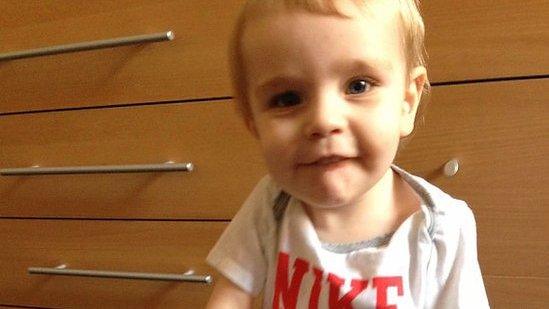Do we know the whole truth about three child deaths?
- Published
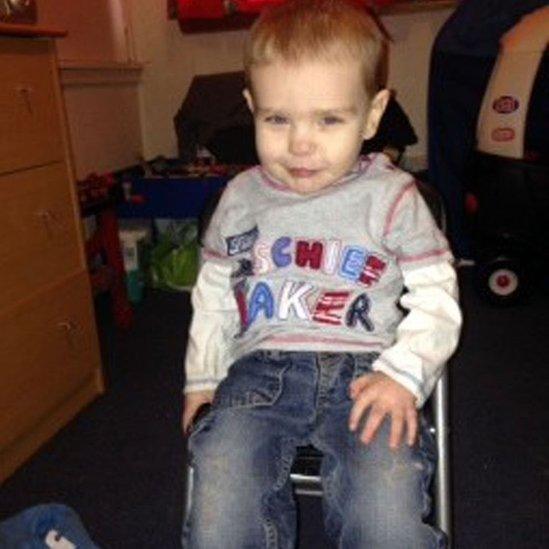
Liam Fee was one of three children killed in Fife within a four-month period in 2014
It was by chance that I was assigned to report on the Liam Fee murder trial. The court case had been put back a week and the reporter initially expected to cover it was on holiday. I had no idea how much of an impact it would have on my journalistic life since then.
For seven weeks in spring last year, I sat at Livingston High Court listening to the most unimaginable horror as the evidence unfolded about the cruelty of Liam's mother Rachel and her partner Nyomi Fee.
Rightly they are serving life sentences for Liam's murder; they are responsible for the toddler's death.
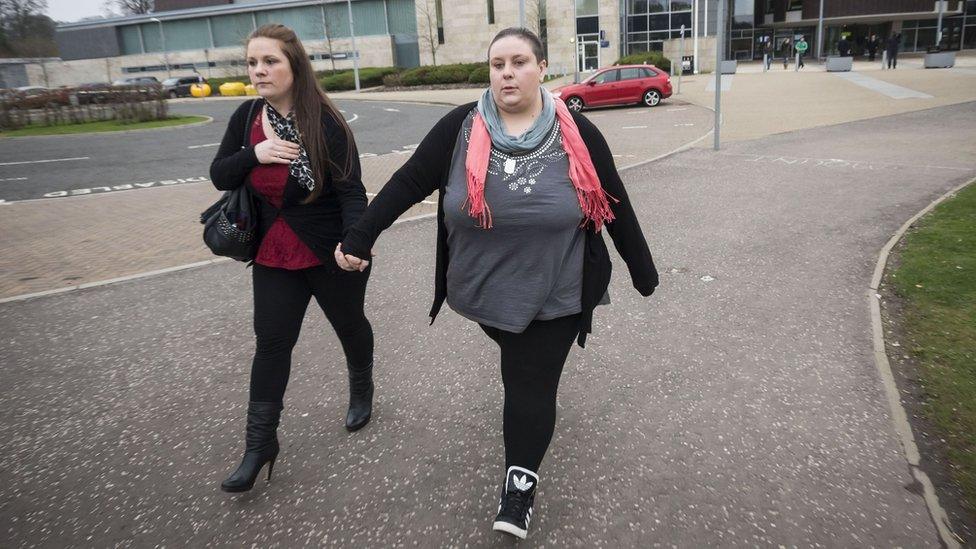
The couple, from Tyne and Wear, were convicted of Liam's murder and abusing two other boys
But like almost everyone else, the outstanding question that I couldn't shake was could more have been done to protect Liam?
And Liam wasn't the only child to die despite some level of previous social work involvement in 2014.
In fact three children died in the first four months of that year. A coincidence or a sign of a wider problem in Fife's child protection system?
In January 2014, three-year-old Mikaeel Kular was killed by his mother. Rosdeep Adekoya had initially reported him missing. She was convicted of culpable homicide.
Liam Fee died in Thornton near Glenrothes in March 2014 and just a month later, only 10 miles away, a little girl called Madison Horn was the victim of a horrific attack. The two-year-old was killed by her mother's new boyfriend, Kevin Park.
In each case Fife's Child Protection Committee commissioned an investigation, known as a Significant Case Review.
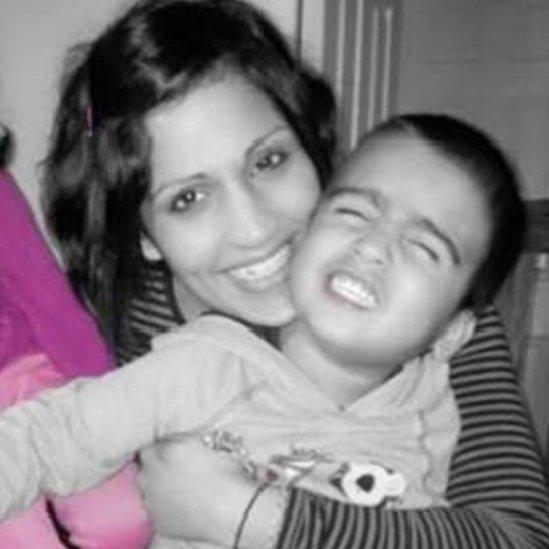
Mikaeel's family said they felt excluded by social work from decisions about the children's future
The language is interesting. They say the deaths could not have been "predicted" or "anticipated".
That is true, but our investigation suggests there is much missing in these official versions of events.
Our TV documentary - Fife's Child Killing: the Untold Story - spent months putting the pieces together but the key has been talking to the children's families, or those closely involved in their care. Many whom have agreed to talk publicly for the first time.
In Madison's case her grandparents and her mother are left in despair that the Significant Case Review says neither she nor her mum were known to social services but doesn't mention that her murderer was.
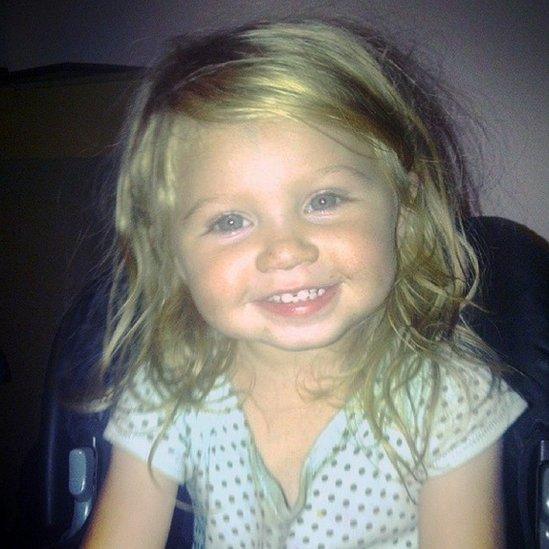
Madison's mother said she wouldn't have been in a relationship with Park if she knew of his past
Kevin Park's social worker was later to face disciplinary action and was found to have put Madison and her mother "at risk" by failing to warn her about her new boyfriend's violent past.
Mikaeel's grandfather told me his family are still not happy with the answers they have been given about social work involvement in the child's life.
He says the family felt excluded from decisions about their grandchildren's care, despite contacting social work about concerns they had.
Dr Bangarpet Krishnaswamy said the family contacted Fife Council social services two or three times with concerns about the welfare of Rosdeep's children but they felt excluded from any decision making process about their future.
Despite their close involvement in the children's lives they said they felt "eliminated from the scene".
The family also have concerns about the Significant Case Review into Mikaeel's death.
Dr Krishnaswamy said he had to initiate involvement with the SCR and that the family were not happy with the findings because it did not answer their key questions.
He said: "When the review body was set up, I wrote to them and said I'd like to explain some of my concerns. Until then they didn't contact me. I made the contact."
He also believes these types of investigations do not promote a culture of learning and should be more public and independent.
"We're all capable of making mistakes and in a big structure it will happen more often, but there seemed to be a lack of accepting that the council need to be upgraded in their knowledge," he said."I think we should develop a culture happy to disclose details."
Alarm raised
But perhaps the most compelling has been hearing from Heather Farmer, Liam Fee's childminder. She agreed to share her experience with us because she wishes "someone had helped him".
She tried to. Time and time again she tried to raise the alarm, spotting the "manipulative" and "devious" behaviour of Rachel and Nyomi as they covered up their abuse with lies.
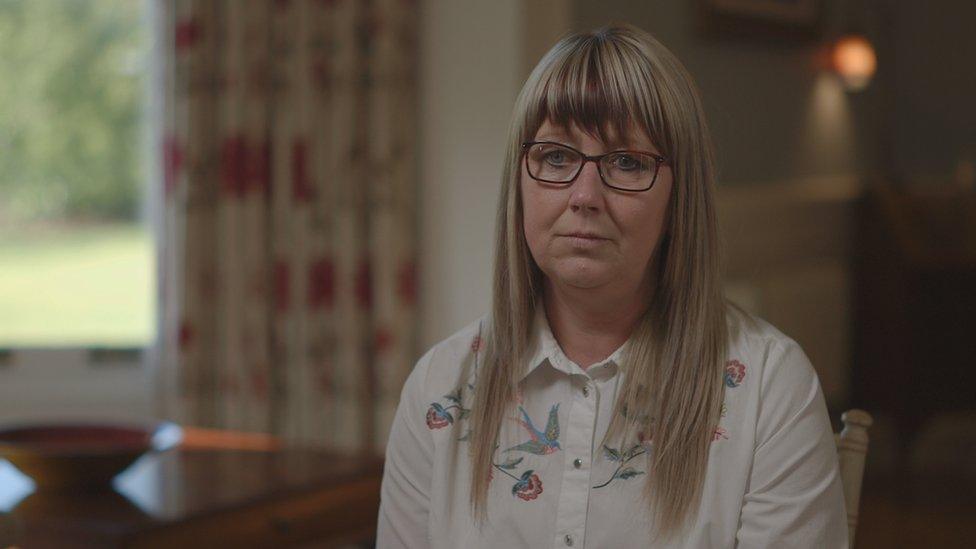
Heather Farmer contacted social work on three occasions with concerns about injuries on Liam
Long before Liam died, Heather Farmer had witnessed the behaviour that the Significant Case Review points to professionals missing over and over again.
One social worker has admitted she made mistakes. That is Lesley Bate, who was struck off last year for putting vulnerable children, including Liam, at risk.
She is, as far as we can tell, the only person to have been disciplined for Liam's case. Yet, as she told me, she stopped working on it in April 2013, almost a year before he died.
Yes, she says, she should have done more, but who else failed to pick up his case?
Is it as simple as casting blame on one frontline member of staff who claims she was struggling in a dysfunctional department?
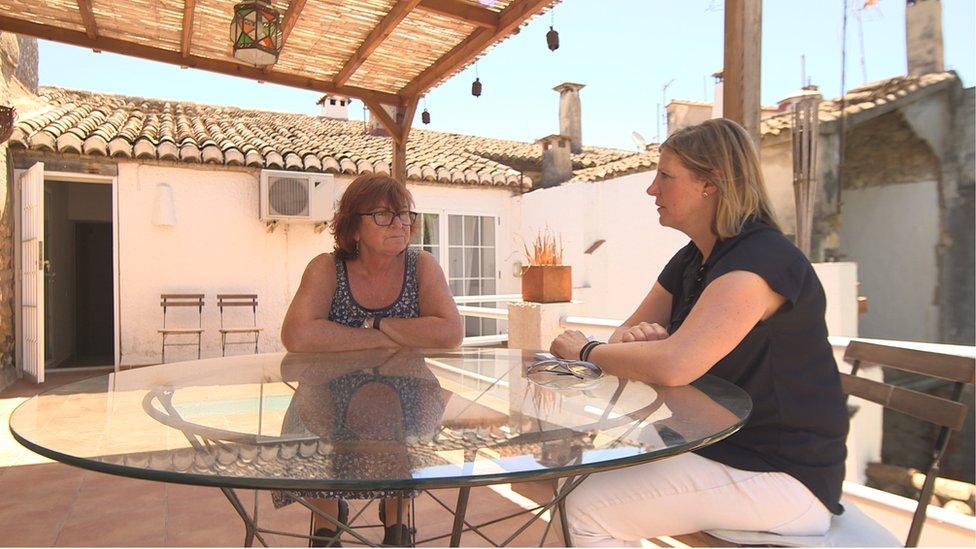
Lesley Bate admitted mistakes with Liam's case but said others should be held accountable too
Fife council issued statements to our investigation on each of the deaths but refused to do an on-camera interview.
It has been frustrating that nobody involved in Child Protection in Fife would agree to do an on-camera interview to directly address the questions we have about each of these cases.
They say things have improved, that child protection is a priority and that they have learned from these tragic deaths.
But is that good enough for the people who loved and cherished these children? Or the people who tried to help them?
They are still grieving, still feeling guilt, wondering 'what if'? Have they had the open, honest and transparent answers they deserve?
- Published2 August 2017
